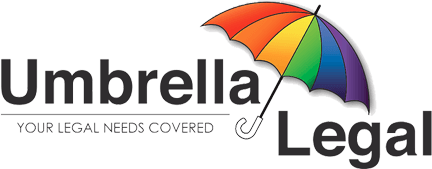Our firm receives a large number of enquiries from clients regarding why they would need a Power of Attorney and Enduring Guardian if they have a Will. The three documents cover very different items, as I will outline below:
Firstly, a Will is a legal document, which outlines the directives, given by yourself, in regards to who you wish to inherit your estate, be appointed as executor, who will hold the Estate on trust, who will be in receipt of any specific assets or belongings and who is to be the legal guardian for any children under the age of 18. A Will can also outline any wishes or arrangements, you would like to take place at your funeral. Wills only take effect following the death of the person that made the Will. A standard Will does not allow for situations that may arise during the course of your life.
Our recommendation is that if you own a home, or other substantial property, if you have children, if you have family that will struggle with deciding who will get what after you pass, you should get a Will.
A Power of Attorney is a complete separate document to a Will, but one that many clients chose to complete alongside their Will. This document essentially gives a person of your choosing, the legal authority to make decisions and manage your assets and finances, if for some reason you are unable to do so yourself whilst you are alive but incapacitated. Some circumstances where a power of attorney may come into effect include if you are incapacitated due to injury, illness, mental health issue, or other impairment that effectively prevents you from managing your own finances. A Power of Attorney is a useful document to have, as the appointed person may, sign legal documents, manage your money including bank accounts and paying bills, buy or sell real estate, or liaise with companies to whom you owe money (telephone providers for example) all on your behalf. Without a Power of Attorney in place, it is left to your loved ones in times of stress, to try to gain financial management for you via the Guardianship Tribunal, which is not a particularly fast or an easy way to do things.
An Enduring Guardian can make decisions for you regarding your health and lifestyle, in the instance that you are unable due to injury, illness or disability. However, they do not act in any financial capacity and are limited to making decisions, if you are unable to. You are able to specify in your Enduring Guardian if you want, or do not want, particular types of treatment. For example, many people may direct that if they want their Guardian to know to “pull the plug” in specific fact circumstances.
If you want to ensure that your medical needs are met, and your assets and liabilities are taken care of in a timely manner in future should anything happen to prevent you from doing so yourself, you should get an Enduring Guardian and Power of Attorney in place.
The thought of estate planning or what would happen to your loved ones when you pass away can cause stress and anxiety for many people. Here at Umbrella Legal we understand your concerns and are here to assist with all of your estate planning needs, to ensure that your wishes are upheld, and that your family, and yourself, are taken care of.
Having a Will, a Power of Attorney and an Enduring Guardian, can ease your stress, and your family’s stress, in knowing that there is a plan in place for when you pass, or in the event that you become unfit to make decisions for yourself. These documents also give your loved ones some sense of clarity in knowing that they are abiding by your wishes, and can take away some of the anxieties of losing their loved one, or whether they are doing the “right thing” by you when medical emergency arises.
Umbrella Legal offers competitively priced package deals for those wanting to complete all three documents simultaneously. If you would like a copy of our pricing schedule for Wills, Power of Attorney & Enduring Guardian, or if you have any further questions, please contact our office today to speak to one of our staff members.
